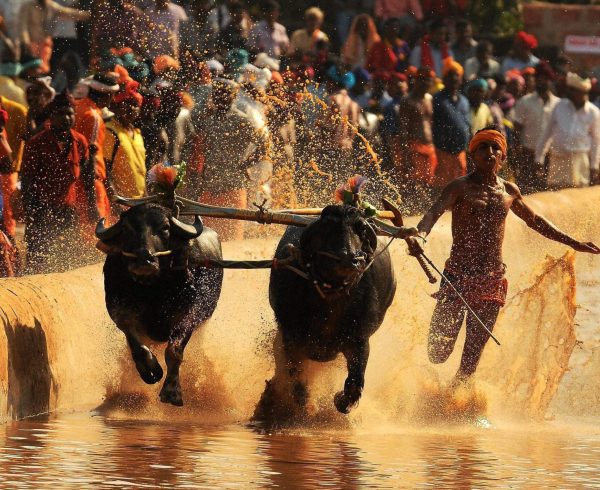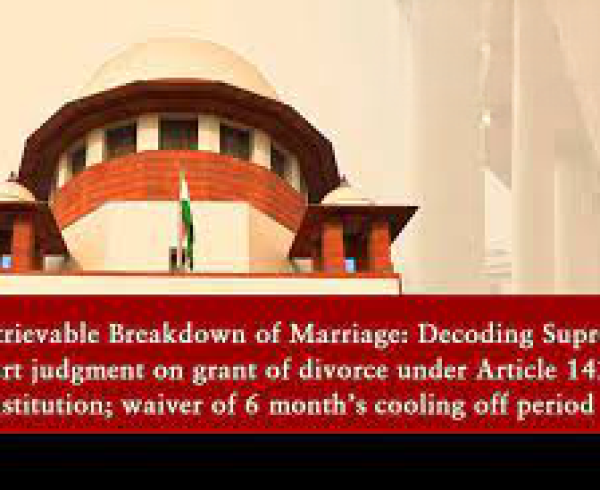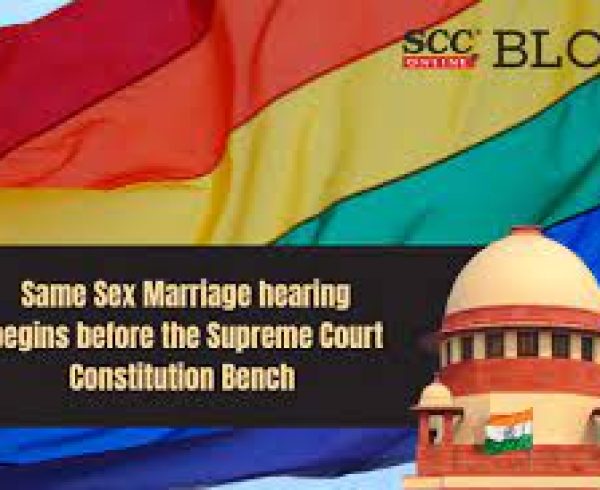The Constitution Bench of SA Nazeer, BR Gavai, AS Bopanna, V Ramasubramanian and BV Nagarathna, JJ has observed that the trial does not abate nor does it result in an order of acquittal of the accused public servant if the complainant turns ‘hostile’, or has died or is unavailable to let in his evidence.
Supreme Court: The 5-judge Constitution Bench of SA Nazeer, BR Gavai, AS Bopanna, V Ramasubramanian and BV Nagarathna*, JJ has answered an important question pertaining to the Prevention of Corruption Act, 1988 and has held that in the absence of evidence of the complainant (direct/primary, oral/documentary evidence), it is permissible to draw an inference of culpability/guilt of a public servant under Section 7 and Section 13(1)(d) read with Section 13(2) of the Act based on other evidence adduced by the prosecution.
The trial does not abate nor does it result in an order of acquittal of the accused public servant if the complainant turns ‘hostile’, or has died or is unavailable to let in his evidence.
Reference —————————————————————————————
On 27.08.2019, a 3-judge bench of NV Ramana, MM Shantanagoudar and Ajay Rastogi, JJ, in Neeraj Datta v. State, 2019 SCC OnLine SC 2205, had called upon a larger bench to decide the issue after noting that two three-judge benches, in B. Jayaraj v. State of Andhra Pradesh, (2014) 13 SCC 55; and P. Satyanarayana Murthy v. District Inspector of Police, State of Andhra Pradesh, (2015) 10 SCC 152, were in conflict with an earlier three-judge bench decision in M. Narsinga Rao v. State of A.P., (2001) 1 SCC 691, regarding the nature and quality of proof necessary to sustain a conviction for the offences under Section 7 and 13(1)(d) read with Section 13(2) of the Prevention of Corruption Act, 1988 when the primary evidence of the complainant is unavailable.
Hence, the moot question before the Court was that in the absence of the complainant letting in direct evidence of demand owing to the non-availability of the complainant or owing to his death or other reason, whether the demand for illegal gratification could be established by other evidence as in the absence of proof of demand, a legal presumption under Section 20 of the Act would not arise.
The proof of demand is a sine qua non for an offence to be established under Sections 7, 13(1)(d)(i) and (ii) of the Act and de hors the proof of demand the offence under the two sections cannot be brought home. Thus, mere acceptance of any amount allegedly by way of illegal gratification or recovery thereof in the absence of proof of demand would not be sufficient to bring home the charge under Sections 7, 13(1)(d)(i) and (ii) of the Act.
Hence, now the Court had to decide how demand could be proved in the absence of any direct evidence being let in by the complainant owing to the complainant not supporting the complaint or turning “hostile” or the complainant not being available on account of his death or for any other reason.
Rulings in question—————————————————————————————-
The Court noticed that in the case of B. Jayaraj, the complainant did not support the prosecution case. In P. Satyanarayana Murthy, the complainant had died prior to letting in his evidence in the case. In M. Narasinga Rao, both the witnesses were declared “hostile”. In various other judgments referred to by the Court, it was noticed that it is either the death or the refusal to support the prosecution case that has led to the legal presumption under Section 20 of the Act not being raised and not bringing home the guilt of the accused.
The Court, hence, observed that that there is no conflict between the judgments in the aforesaid three cases, with regard to the nature and quality of proof necessary to sustain a conviction for offences under Sections 7 or 13(1)(d)(i) and (ii) of the Act, when the direct evidence of the complainant or “primary evidence” of the complainant is unavailable owing to his death or any other reason.
Hence, in the event the complainant turns ‘hostile’, or has died or is unavailable to let in his evidence during trial, demand of illegal gratification can be proved by letting in the evidence of any other witness who can again let in evidence, either orally or by documentary evidence or the prosecution can prove the case by circumstantial evidence.
Summary———————————————————————————————
(a) Proof of demand and acceptance of illegal gratification by a public servant as a fact in issue by the prosecution is a sine qua non in order to establish the guilt of the accused public servant under Sections 7 and 13 (1)(d) (i) and(ii) of the Act.
(b) In order to bring home the guilt of the accused, the prosecution has to first prove the demand of illegal gratification and the subsequent acceptance as a matter of fact. This fact in issue can be proved either by direct evidence which can be in the nature of oral evidence or documentary evidence.
(c) Further, the fact in issue, namely, the proof of demand and acceptance of illegal gratification can also be proved by circumstantial evidence in the absence of direct oral and documentary evidence.
(d) In order to prove the fact in issue, namely, the demand and acceptance of illegal gratification by the public servant, the following aspects have to be borne in mind:
(i) if there is an offer to pay by the bribe giver without there being any demand from the public servant and the latter simply accepts the offer and receives the illegal gratification, it is a case of acceptance as per Section 7 of the Act. In such a case, there need not be a prior demand by the public servant.
(ii) On the other hand, if the public servant makes a demand and the bribe giver accepts the demand and tenders the demanded gratification which in turn is received by the public servant, it is a case of obtainment. In the case of obtainment, the prior demand for illegal gratification emanates from the public servant. This is an offence under Section 13 (1)(d)(i) and (ii) of the Act.
(iii) In both cases of (i) and (ii) above, the offer by the bribe giver and the demand by the public servant respectively have to be proved by the prosecution as a fact in issue. In other words, mere acceptance or receipt of an illegal gratification without anything more would not make it an offence under Section 7 or Section 13 (1)(d), (i) and (ii) respectively of the Act. Therefore, under Section 7 of the Act, in order to bring home the offence, there must be an offer which emanates from the bribe giver which is accepted by the public servant which would make it an offence. Similarly, a prior demand by the public servant when accepted by the bribe giver and inturn there is a payment made which is received by the public servant, would be an offence of obtainment under Section 13 (1)(d) and (i) and (ii) of the Act.
(e) The presumption of fact with regard to the demand and acceptance or obtainment of an illegal gratification may be made by a court of law by way of an inference only when the foundational facts have been proved by relevant oral and documentary evidence and not in the absence thereof. On the basis of the material on record, the Court has the discretion to raise a presumption of fact while considering whether the fact of demand has been proved by the prosecution or not. Of course, a presumption of fact is subject to rebuttal by the accused and in the absence of rebuttal presumption stands.
(f) In the event the complainant turns ‘hostile’, or has died or is unavailable to let in his evidence during trial, demand of illegal gratification can be proved by letting in the evidence of any other witness who can again let in evidence, either orally or by documentary evidence or the prosecution can prove the case by circumstantial evidence. The trial does not abate nor does it result in an order of acquittal of the accused public servant.
(g) In so far as Section 7 of the Act is concerned, on the proof of the facts in issue, Section 20 mandates the court to raise a presumption that the illegal gratification was for the purpose of a motive or reward as mentioned in the said Section. The said presumption has to be raised by the court as a legal presumption or a presumption in law. Of course, the said presumption is also subject to rebuttal. Section 20 does not apply to Section 13 (1) (d) (i) and (ii) of the Act.
(h) The presumption in law under Section 20 of the Act is distinct from presumption of fact referred to above in point (e) as the former is a mandatory presumption while the latter is discretionary in nature.
[Neeraj Datta v. State, 2022 SCC OnLine SC 1724 , decided on 15.12.2022]
Source Url:






Leave a Comment